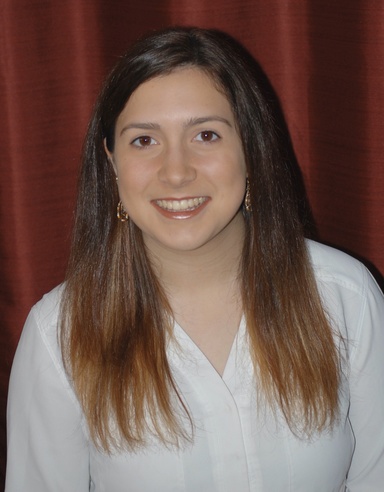A University of Iowa third-year student studying astronomy, physics, and mathematics has been named a 2020 Goldwater Scholar.

Emily Silich, of Epworth, Iowa, performs research with UI Professor of Physics and Astronomy Philip Kaaret on the HaloSat project, an astrophysics mission in collaboration with NASA that searches the Milky Way’s galactic halo for missing matter.
Most recently, Silich used HaloSat data to investigate the X-ray spectrum of the Vela Supernova Remnant. She says being involved in research as an undergraduate has helped her in numerous ways.
“Being able to perform my own investigation into the Vela Supernova Remnant with data from the HaloSat mission allowed me to develop skills as a researcher that will be applicable throughout my career,” Silich says. “Another important aspect of performing research as an undergraduate is presenting results to a variety of audiences, from experts to the general public. Having this experience early in my academic career has allowed me to develop the ability to clearly articulate the importance of my research.”
The Goldwater Scholarship program, established by Congress in 1986 in honor of U.S. Sen. Barry M. Goldwater, fosters and encourages outstanding students to pursue careers in the fields of mathematics, the natural sciences, and engineering. The Goldwater is the premier undergraduate award of its type in these fields.
Kaaret says Silich is a meticulous researcher and a quick learner. In summer 2018, while working on the Vela Supernova Remnant project, Kaaret says Silich needed to modify an apparatus his team had built to generate polarized X-rays.
“This required Emily to learn the theory and operation of X-ray tubes; how our laboratory X-ray detectors and nuclear instrumentation electronics work; and how to effectively interface with our machine shop, our NASA collaborators, and her research advisor,” Kaaret says. “Emily learned very rapidly and was taking X-ray spectra within a week of starting in the lab.”
Silich developed an interest in space instrumentation while participating in the CaNoRock sounding rocket field school in Norway in January 2019. She was selected for an internship this summer at NASA’s Goddard Space Flight Center, where she will be working in a lab helping build an instrument to measure the polarization of X-rays on a future space mission.
“I chose this opportunity because I enjoyed my time building instrumentation for sounding rockets while at a field school in Norway, and I’d like to continue gaining lab experience,” Silich says.
Silich stands out among her peers because of her “relentless attention to detail,” Kaaret says.
“Her dedication also shows in her other work. Several of my students have been working on papers using data from our HaloSat cube satellite that is currently orbiting the Earth and detecting X-rays from our Milky Way galaxy,” he says. “Emily is the first student on the project to have her paper finished and submitted to a scientific journal, and she’s already working on her second paper.”
Silich plans to pursue a PhD in astrophysics after her graduation from the UI in May 2021.